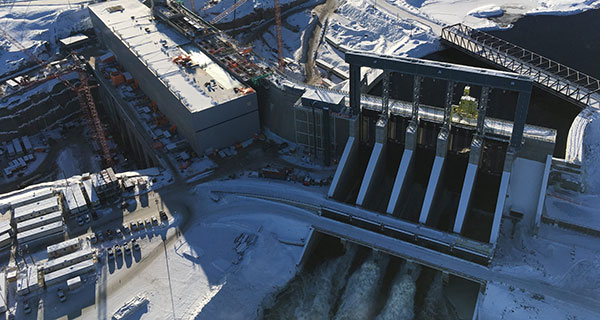 The citizens and taxpayers of Newfoundland and Labrador received important news late in 2018: an autopsy of the horrific financial debacle at Churchill Falls and the beginning of an inquiry into the questionable new Muskrat Falls hydroelectric project.
The citizens and taxpayers of Newfoundland and Labrador received important news late in 2018: an autopsy of the horrific financial debacle at Churchill Falls and the beginning of an inquiry into the questionable new Muskrat Falls hydroelectric project.
The long legal battle has ended over the Joey Smallwood era’s unprofitable Churchill Falls contract, which the provincial utility holding company Nalcor Energy entered into in the 1960s to sell hydroelectric power to Hydro-Québec.
The contract stands as is, neither to be renegotiated nor broken. Nalcor is compelled to sell power to Québec at 1969 prices until 2041 (a tiny fraction of current market prices). At that point, Hydro-Quebec’s 65.8 per cent share in Churchill Falls output can be sold at market rates.
That’s nothing to sneeze at – Churchill Falls’ hydroelectricity generation is mammoth. The lost income for Nalcor as a result of selling at the minuscule contract levels rather than today’s market prices is substantial. The loss to Newfoundland and Labrador ratepayers and taxpayers through 2041 is worth billions of dollars.
The additional value of Churchill Falls for Nalcor beginning in 2041 could be crucial in a number of ways, not least of which is the fact that the still-incomplete Muskrat Falls project’s cost are still soaring.
The debt Nalcor has taken on to complete the Muskrat Falls generating facility, and the high-capacity line linking it from Labrador to the island of Newfoundland, is now expected to be over $15 billion. That’s basically twice the initial estimate. The province has had to borrow billions to keep Nalcor solvent.
When Muskrat Falls is complete, the annual interest on the debt will amount to as much as $500 million a year. And as bond holders also expect to be paid back, principal payments on top of the interest due will push the total annual cash outflow from Nalcor and the government to near $1 billion.
Of course, Nalcor and Newfoundland Labrador have options. Nalcor could be sold, presumably for billions of dollars. Yet such a sale would necessarily undervalue the stake Nalcor holds in Churchill Falls.
But Churchill Falls doesn’t need to be sold for it to be of value to the province.
The value of cash flow from Churchill Falls from 2041 forward could be the collateral the province needs to get some, most or all of the Nalcor debt bought back and refinanced by the federal government, with its far lower borrowing costs. A reduction of a full percentage point would mean a great deal, given the billions of debt.
And the federal government is already committed to Muskrat Falls, having provided a substantial debt guarantee.
The province has other options:
- sell off surplus real estate or Crown enterprises;
- sell mineral rights or hydroelectric development rights to Gull Island (another potential generation site near Muskrat Falls);
- sell Nalcor, which may be worth $5 billion if debt-free.
While none of those alternatives may seem attractive, that’s what happens when bad decisions lead to an investment in a project like Muskrat Falls. That investment should not have occurred, nor should a contract have been signed without future rates factoring in inflation.
Muskrat Falls could end up costing $15 billion (including financial costs). The original estimate was $6.2 billion. This would push rates for Newfoundlanders to 22 cents per kWh, nearly double basic electricity rates elsewhere in Canada.
If Muskrat Falls’ debt load is to be eased, every feasible approach should be investigated. The long-suffering people of Newfoundland and Labrador are owed such an effort.
It may be difficult to avoid selling off Nalcor. But politicians couldn’t possibly screw it up again once it’s out of their control.
Ian Madsen is a senior policy analyst with the Frontier Centre for Public Policy.
The views, opinions and positions expressed by columnists and contributors are the author’s alone. They do not inherently or expressly reflect the views, opinions and/or positions of our publication.
